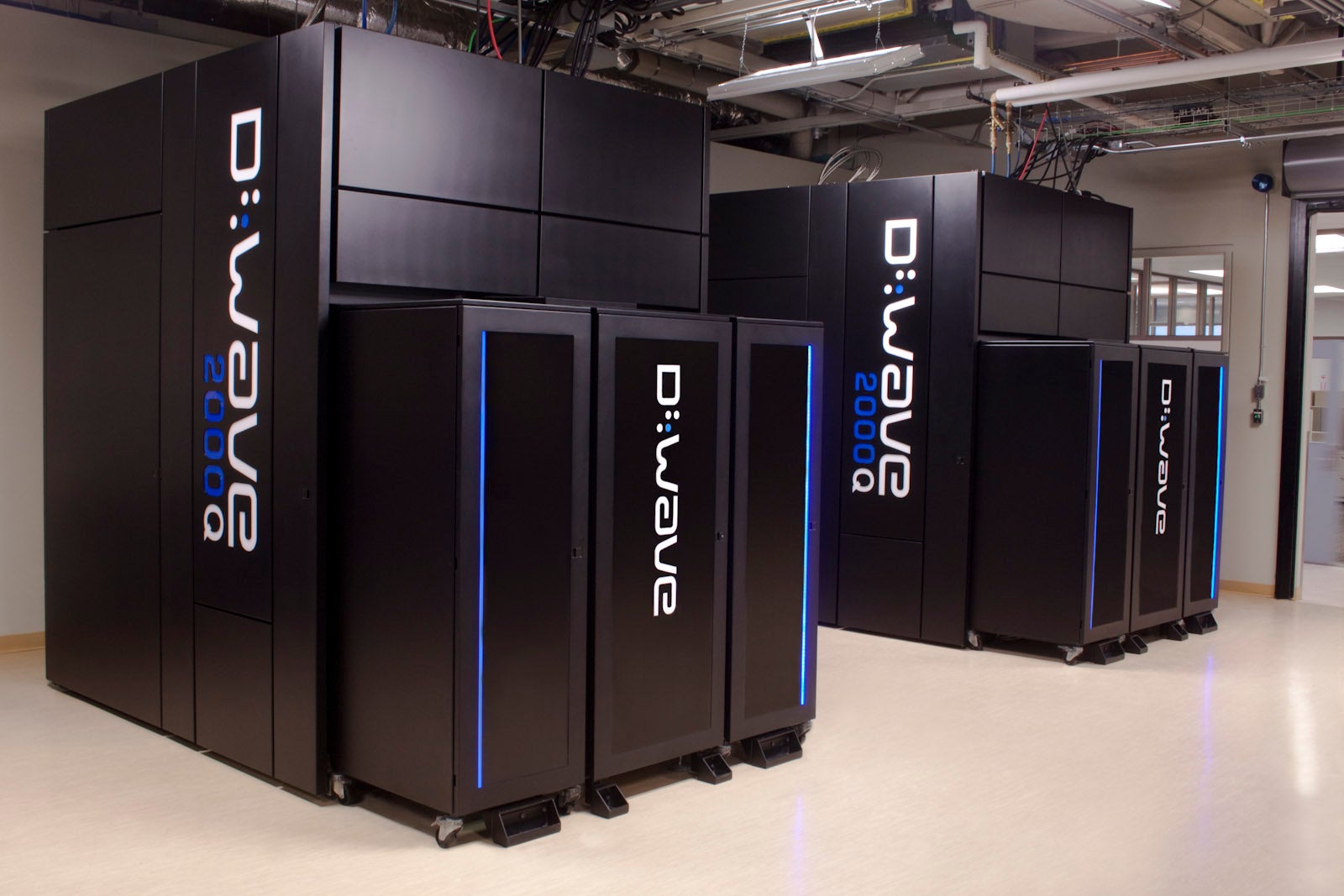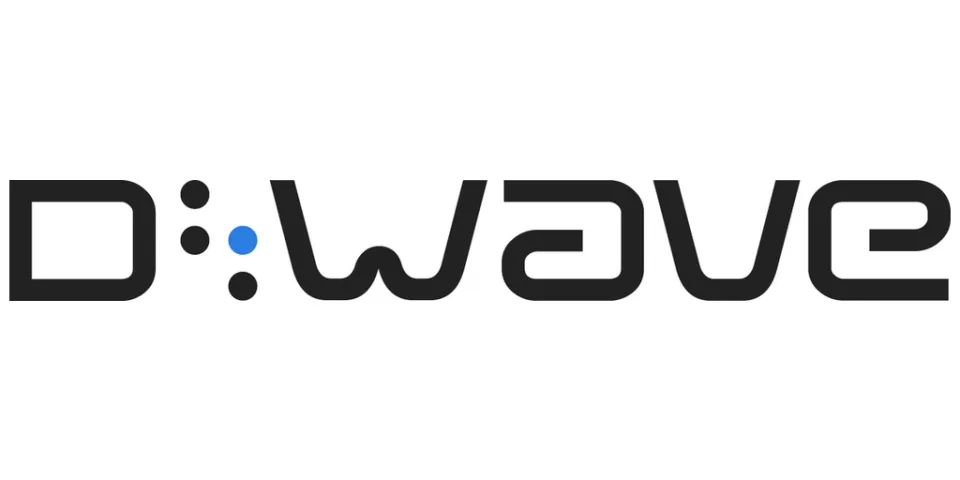D-Wave Quantum's Financial Performance and Market Optimism

- Earnings per Share (EPS) of -$0.37, missing estimates but with higher-than-expected revenue of $2.31 million.
- Positive stock movement attributed to revenue performance and new customer acquisition.
- Despite a negative P/E ratio, investor confidence remains high due to potential growth.
D-Wave Quantum, trading on the NYSE under the symbol QBTS, is a company focused on quantum computing technology. On March 13, 2025, QBTS reported its earnings, revealing an earnings per share (EPS) of -$0.37, which was significantly lower than the estimated EPS of -$0.09. Despite this, the company generated a revenue of approximately $2.31 million, surpassing the estimated revenue of $2.23 million.
The company's stock is experiencing a rise, as highlighted by Barron's, despite the wider-than-expected loss. This positive movement in the stock price is attributed to D-Wave Quantum's better-than-expected revenue performance and its continued success in gaining new customers. The company's ability to exceed revenue expectations suggests strong demand for its quantum computing solutions.
QBTS has a negative price-to-earnings (P/E) ratio of approximately -9.42, indicating that it is currently not profitable. However, its price-to-sales ratio stands at a high 175.76, suggesting that investors are willing to pay a significant premium for each dollar of sales. This reflects investor confidence in the company's future growth potential despite its current lack of profitability.
The enterprise value to sales ratio is 156.53, which also reflects a high valuation relative to sales. Additionally, the enterprise value to operating cash flow ratio is -23.26, indicating negative operating cash flow. These metrics highlight the challenges QBTS faces in achieving profitability, but also underscore the market's optimism about its long-term prospects.
Despite these challenges, QBTS maintains a relatively low debt-to-equity ratio of 0.13, suggesting a conservative use of debt in its capital structure. The company also has a strong current ratio of 6.14, indicating good short-term financial health and the ability to cover its current liabilities with its current assets. This financial stability provides a solid foundation for QBTS as it continues to navigate the competitive quantum computing landscape.
| Symbol | Price | %chg |
|---|---|---|
| 7751.T | 4367 | -0.69 |
| 005070.KS | 43900 | 4.78 |
| 2382.TW | 273 | -0.18 |
| AXIO.JK | 129 | 0 |

D-Wave Quantum Inc. (NYSE:QBTS) Financial Analysis
- D-Wave Quantum Inc. (NYSE:QBTS) has a Return on Invested Capital (ROIC) of -45.13% and a Weighted Average Cost of Capital (WACC) of 9.44%, indicating inefficiency in generating returns over its cost of capital.
- Rigetti Computing, Inc. (RGTI) shows slightly more efficient capital utilization compared to D-Wave, with a ROIC of -25.12% and a WACC of 10.58%.
- FOXO Technologies Inc. (FOXO) has the highest ROIC to WACC ratio among the peers at -0.65, suggesting it is closer to breaking even compared to its peers in the quantum computing sector.
D-Wave Quantum Inc. (NYSE:QBTS) is a company that focuses on developing and delivering quantum computing systems, software, and services. It aims to solve complex computational problems that are beyond the reach of classical computers. The company operates in a competitive landscape alongside peers like Rigetti Computing, Inc. (RGTI), Arqit Quantum Inc. (ARQQ), Quantum Computing, Inc. (QUBT), IonQ, Inc. (IONQ), and FOXO Technologies Inc. (FOXO).
D-Wave Quantum Inc. has a Return on Invested Capital (ROIC) of -45.13% and a Weighted Average Cost of Capital (WACC) of 9.44%. This results in a ROIC to WACC ratio of -4.78, indicating inefficiency in generating returns over its cost of capital. The negative ratio suggests that the company is not effectively utilizing its invested capital to cover its costs.
In comparison, Rigetti Computing, Inc. has a ROIC of -25.12% and a WACC of 10.58%, leading to a ROIC to WACC ratio of -2.37. Although still negative, Rigetti's ratio is better than D-Wave's, suggesting slightly more efficient capital utilization. However, both companies are struggling to generate returns above their cost of capital.
Arqit Quantum Inc. presents a more challenging scenario with a ROIC of -326.02% and a WACC of 14.14%, resulting in a ROIC to WACC ratio of -23.05. This indicates significant inefficiency in capital utilization, highlighting the difficulties faced by companies in the quantum computing sector in achieving profitability.
FOXO Technologies Inc. stands out with the highest ROIC to WACC ratio among the peers at -0.65, despite being negative. This suggests that FOXO is closer to breaking even compared to its peers. The overall negative ROIC to WACC ratios across the industry reflect the challenges in generating sufficient returns on invested capital, possibly due to high R&D costs and the nascent stage of the quantum computing industry.

D-Wave Quantum Inc. (NYSE:QBTS) Financial Analysis
- D-Wave Quantum Inc. (NYSE:QBTS) has a Return on Invested Capital (ROIC) of -45.13% and a Weighted Average Cost of Capital (WACC) of 9.44%, indicating inefficiency in generating returns over its cost of capital.
- Rigetti Computing, Inc. (RGTI) shows slightly more efficient capital utilization compared to D-Wave, with a ROIC of -25.12% and a WACC of 10.58%.
- FOXO Technologies Inc. (FOXO) has the highest ROIC to WACC ratio among the peers at -0.65, suggesting it is closer to breaking even compared to its peers in the quantum computing sector.
D-Wave Quantum Inc. (NYSE:QBTS) is a company that focuses on developing and delivering quantum computing systems, software, and services. It aims to solve complex computational problems that are beyond the reach of classical computers. The company operates in a competitive landscape alongside peers like Rigetti Computing, Inc. (RGTI), Arqit Quantum Inc. (ARQQ), Quantum Computing, Inc. (QUBT), IonQ, Inc. (IONQ), and FOXO Technologies Inc. (FOXO).
D-Wave Quantum Inc. has a Return on Invested Capital (ROIC) of -45.13% and a Weighted Average Cost of Capital (WACC) of 9.44%. This results in a ROIC to WACC ratio of -4.78, indicating inefficiency in generating returns over its cost of capital. The negative ratio suggests that the company is not effectively utilizing its invested capital to cover its costs.
In comparison, Rigetti Computing, Inc. has a ROIC of -25.12% and a WACC of 10.58%, leading to a ROIC to WACC ratio of -2.37. Although still negative, Rigetti's ratio is better than D-Wave's, suggesting slightly more efficient capital utilization. However, both companies are struggling to generate returns above their cost of capital.
Arqit Quantum Inc. presents a more challenging scenario with a ROIC of -326.02% and a WACC of 14.14%, resulting in a ROIC to WACC ratio of -23.05. This indicates significant inefficiency in capital utilization, highlighting the difficulties faced by companies in the quantum computing sector in achieving profitability.
FOXO Technologies Inc. stands out with the highest ROIC to WACC ratio among the peers at -0.65, despite being negative. This suggests that FOXO is closer to breaking even compared to its peers. The overall negative ROIC to WACC ratios across the industry reflect the challenges in generating sufficient returns on invested capital, possibly due to high R&D costs and the nascent stage of the quantum computing industry.

D-Wave Quantum's Financial Performance and Market Optimism
- Earnings per Share (EPS) of -$0.37, missing estimates but with higher-than-expected revenue of $2.31 million.
- Positive stock movement attributed to revenue performance and new customer acquisition.
- Despite a negative P/E ratio, investor confidence remains high due to potential growth.
D-Wave Quantum, trading on the NYSE under the symbol QBTS, is a company focused on quantum computing technology. On March 13, 2025, QBTS reported its earnings, revealing an earnings per share (EPS) of -$0.37, which was significantly lower than the estimated EPS of -$0.09. Despite this, the company generated a revenue of approximately $2.31 million, surpassing the estimated revenue of $2.23 million.
The company's stock is experiencing a rise, as highlighted by Barron's, despite the wider-than-expected loss. This positive movement in the stock price is attributed to D-Wave Quantum's better-than-expected revenue performance and its continued success in gaining new customers. The company's ability to exceed revenue expectations suggests strong demand for its quantum computing solutions.
QBTS has a negative price-to-earnings (P/E) ratio of approximately -9.42, indicating that it is currently not profitable. However, its price-to-sales ratio stands at a high 175.76, suggesting that investors are willing to pay a significant premium for each dollar of sales. This reflects investor confidence in the company's future growth potential despite its current lack of profitability.
The enterprise value to sales ratio is 156.53, which also reflects a high valuation relative to sales. Additionally, the enterprise value to operating cash flow ratio is -23.26, indicating negative operating cash flow. These metrics highlight the challenges QBTS faces in achieving profitability, but also underscore the market's optimism about its long-term prospects.
Despite these challenges, QBTS maintains a relatively low debt-to-equity ratio of 0.13, suggesting a conservative use of debt in its capital structure. The company also has a strong current ratio of 6.14, indicating good short-term financial health and the ability to cover its current liabilities with its current assets. This financial stability provides a solid foundation for QBTS as it continues to navigate the competitive quantum computing landscape.







